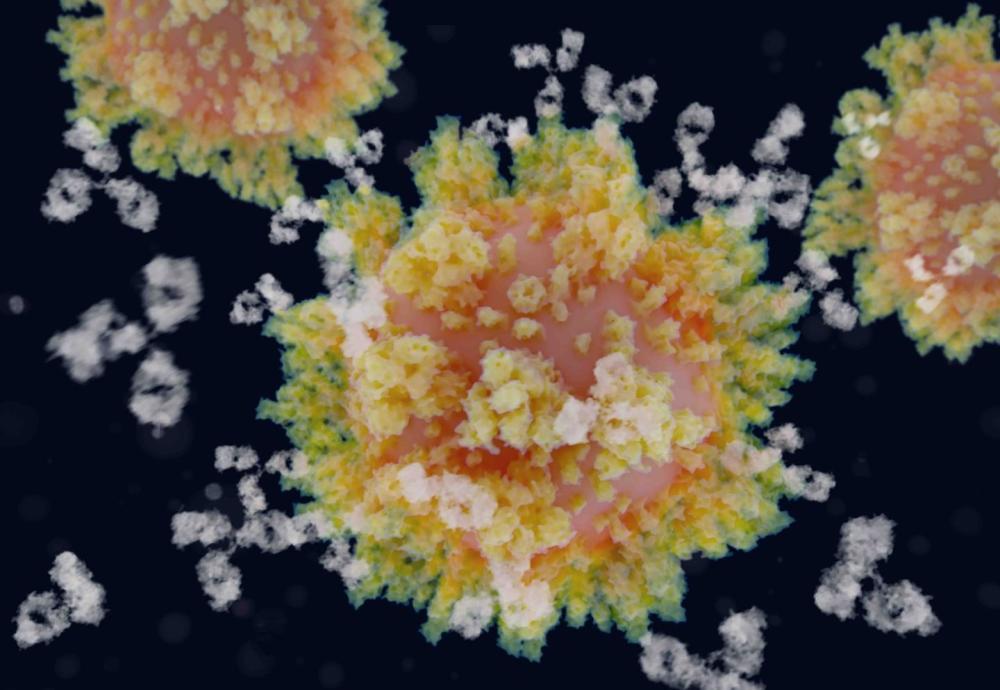According to foreign media reports on the 9th, German Health Minister Carl Lauterbach said that the idea that "Omi kerong is the terminator of the new crown pandemic" is "very naïve". As Omiljung continues to spread in Germany and around the world, vaccination is the only way out of the pandemic.
Lauterbach said in an interview today that the Olmikron strain appears to be milder than previous coronavirus variants, but he warned that if the spread of Theomilon is uncontrolled, "many people will also get seriously ill and [their health] will be permanently damaged." ”
According to Xinhua News Agency reported on the 7th, the World Health Organization also warned this week that although many studies have shown that the risk of severe illness caused by the new coronavirus variant Aomi Kerong is lower than other variants that have previously circulated, it is still causing deaths in many countries around the world, so it is not appropriate to describe the characteristics of this strain as "mild".
WHO Director-General Tedros Adhanom Ghebreyesus said at a press conference on the 6th that more and more people are infected with Omi kerong, and the medical system is under serious pressure. "While it is true that the risk of severe illness in Aumechron is lower compared to Delta, especially in vaccinated populations, that does not mean it should be classified as 'mild'. Like other variants that were previously popular, Omikeron would hospitalize people and die. Tedros said.

Covid-19 infection triggers self-aggressive antibodies in the body
Meanwhile, a new study published this week in the Uk's Journal of Translational Medicine reveals yet another "sequelae" of COVID-19 infection. A team of researchers at the Schmidt Heart Institute at Sid Sinai Medical Center in Los Angeles found that covid-19 infection triggers self-aggressive antibodies in the human body that not only "stay" in the body for long periods of time, but also mistakenly attack healthy tissues and organs, even mildly or asymptomatic infected people are "not spared."
Antibody levels continue to rise after full recovery and attack healthy cells
It is well known that people infected with the new crown will produce antibodies in the body to resist the invasion of foreign viruses. Previously, studies have shown that severe COVID-19 can cause great stress on the immune system, resulting in aggressive antibodies that cause long-term damage to patients' health. In this latest study, however, researchers have revealed for the first time that the same is true for people with mild or asymptomatic infections. In this study, all infected people had a variety of autoantibodies within six months of full recovery.
Researchers reportedly took blood samples from 177 unvaccinated patients infected with COVID-19 and compared them to healthy blood samples taken before the pandemic. The results showed that during the 6 months of full recovery, autoantibody levels continued to rise in all infected people, and some antibodies were found in diseases in which the immune system attacked their own healthy cells, such as lupus and rheumatoid arthritis.
Susan Cheng
"We found signals of autoantibody activity that are often associated with chronic inflammation and damage involving specific organ systems and tissues, such as joints, skin, and the nervous system," said Susan Cheng, one of the study's senior authors and director of the Institute for Healthy Aging in the Schmidt Heart Institute's Department of Cardiology. She explained that there is usually no such diverse increase in autoantibody levels in the human body, nor does it continue to rise for 6 months after clinical recovery.
Immune disorders or the basis of different persistent symptoms
In addition, among these infected people, male and female autoantibody levels were different, with male autoantibody levels being higher than in females. The researchers say this is a surprising finding because in some immune diseases associated with autoantibodies, women are more likely to be affected than men.
Co-senior author Of the study, Dr. Justyna Fert-Bober of the Department of Cardiology at the Schmidt Heart Institute, explains that the findings are contradictory on the one hand, as autoimmune diseases are generally more common in women. But on the other hand, given that previous studies have shown that men with COVID-19 are more likely to suffer from severe illness, this finding is "somewhat to some extent to be expected."
"These findings help explain why COVID-19 is a particularly unique disease." These patterns of immune dysregulation may be the basis for the different persistent symptoms we find in long-term COVID-19 patients. Fert-Bober said.
However, Susan Cheng said it is unclear whether the antibodies in the patient's body will continue to rise after 6 months of full recovery, or cause other clinical symptoms. At present, the research team is investigating whether elevated autoantibodies are related to persistent symptoms in patients with long-term symptoms of new coronary pneumonia, and plans to further study the level of autoantibodies after infection with the new variant of the virus.
"If we can better understand these autoantibody responses and how COVID-19 infection triggers and drives these variable responses, then we are one step closer to finding treatments and even preventing these effects from occurring in high-risk populations." She said.
Red Star News reporter Xu Huan
Edited by Zhang Xun
(Download Red Star News, there are prizes for the newspaper!) )